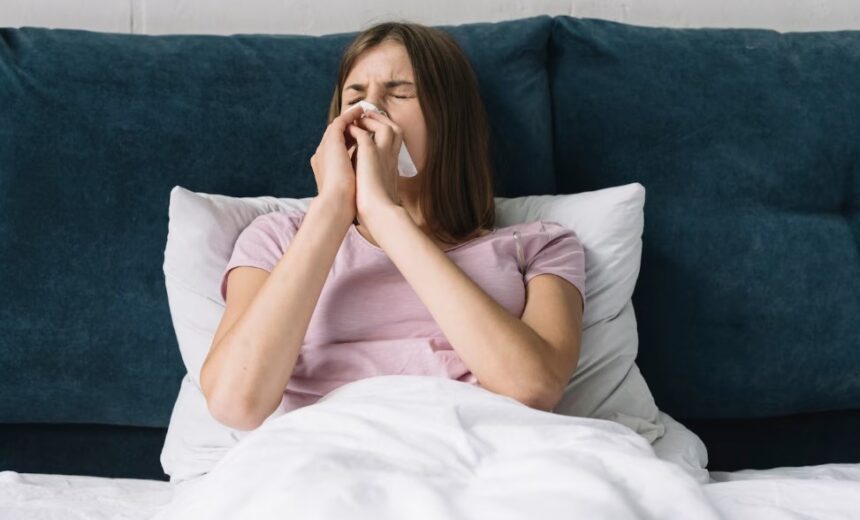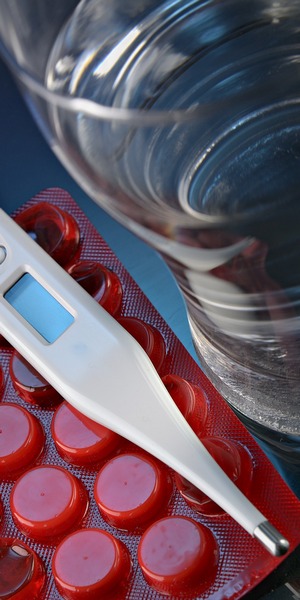Understanding Nocturnal Nasal Hemorrhages: Causes & Risks

Experiencing a nasal hemorrhage while asleep can be alarming, especially when discovered upon waking with a stained pillowcase. While the occurrence may raise concerns, the causative factors are often not life-threatening and resemble those responsible for daytime nasal bleeding.
This comprehensive guide explores the underlying reasons for this phenomenon, offering actionable insights for prevention and alleviation.
Experiencing Nasal Hemorrhage During the Night: The Factors Involved
It’s especially unnerving to experience a nasal bleed in the dark hours, possibly even disturbing one’s restful slumber. However, in most instances, the cause is far from alarming. If the bleeding halts within 15 minutes and isn’t a recurrent issue, it usually points to a benign reason.
Causes Behind Nocturnal Nasal Hemorrhage
Determining the root cause of nocturnal nasal bleeding can be somewhat challenging, mainly because you are unconscious during its occurrence. However, the precipitating factors often resemble those that cause similar incidents during waking hours. Here are some common triggers:
Dry Air and Your Sinuses
Staying indoors with an active heating system can cause your skin and internal nasal linings to lose moisture. A lack of humidity in your surroundings can make the fragile membranes within your nostrils susceptible to tears and subsequent bleeding.
This issue is particularly prevalent during colder seasons but can happen whenever the air lacks sufficient moisture.
- Prevention: Employing a room humidifier and applying a saline solution to your nostrils can mitigate dryness.
Forceful Nose-Clearing
When forcefully expelled, air can injure delicate blood vessels inside your nostrils, resulting in a bleed. This can occur irrespective of the time of day.
- Allergic Reactions: Allergies compound the risk by necessitating frequent nose-clearing and possibly involving steroidal sprays that can exacerbate dryness;
- Prevention: Softly blow your nose, use a damp cloth for wiping, and avoid strong antihistamines that may cause dryness.
Sinus-Related Illnesses
- Infections in your sinuses or upper respiratory tract can lead to an irritated and damaged internal nostril lining. This increases the likelihood of a nocturnal nasal bleed;
- Symptoms: Repeated sneezing or mucous expulsion can aggravate the condition;
- Prevention: Maintaining hydration and applying a petroleum-based product can alleviate nasal dryness and diminish the occurrence of bleeding episodes.
The Aftermath of Sinus Illnesses: What Happens Next?
When you are grappling with sinus infections or respiratory illnesses, the additional burden of nocturnal nasal bleeds can be distressing. Fortunately, such bleeding events usually subside as your overall health improves and your sinuses return to normal function.
The Habit of Nostril Exploration
The action of nostril exploration, more commonly known as nose-picking, stands as a frequent contributor to nasal hemorrhages. While it’s less likely to happen when one is in a state of rest, the actions leading up to bedtime could be problematic.
Whether you’re engrossed in a book or captivated by a television show, you may inadvertently engage in the habit, potentially leading to nocturnal nasal bleeding. A lack of adequate nail care could aggravate the situation, making the sensitive lining within your nasal passages susceptible to tears.
Regular trimming of fingernails and being conscious of the habit can reduce risks. Additionally, using softer alternatives like tissues for nasal cleaning can help.
Are You Sure It’s a Nasal Hemorrhage?
A solitary occurrence with a minor amount of red substance on your bedding could be misdiagnosed as a nasal hemorrhage. In high-stress situations, it’s easy for your mind to entertain worst-case scenarios, much like mistaking beet-colored feces for internal bleeding.
The red substance could originate from various other sources: perhaps a cut from shaving, a burst pimple, or even from a self-applied beauty product like hair dye or tanning lotion.
Inspect your surroundings. A close examination of your hands or other body parts might provide clues, as minor injuries could lead to the staining of your bedding. If you share your resting area with pets, their activities could also be the cause of the mystery marks on your linen.
The Role of Medications and Supplements
Certain medications and nutritional supplements can make one more prone to nasal bleeding during nocturnal hours:
- Blood thinners, such as aspirin and anticoagulants, can make blood vessels more susceptible to rupturing, thus elevating the risk of nasal hemorrhages;
- Additionally, overuse of vitamin supplements like Vitamin E can have a similar effect.
If you’re on medication, especially blood thinners, consult your healthcare provider for possible side effects. Similarly, moderate the use of supplements and focus on a balanced diet to naturally obtain the required nutrients.
Weather Conditions and Nocturnal Nasal Hemorrhage
Weather conditions can also play a role in nighttime nasal bleeding:
- Extreme temperatures, both hot and cold, can alter the interior environment of your dwelling, affecting humidity levels and thereby the condition of your nasal lining;
- Low humidity conditions are notorious for causing mucosal dryness, making your nostrils vulnerable to hemorrhages.
During extreme weather, try to maintain indoor humidity between 30-50% to safeguard against nasal dryness. Employing a hygrometer can help in monitoring indoor humidity levels accurately.
Conclusion
Experiencing a nasal hemorrhage during nighttime can be an alarming experience that raises numerous questions and concerns. Understanding the variety of factors that contribute to such events can mitigate anxieties and help in formulating preventive strategies.
Whether the cause is as trivial as a nostril exploration habit or as significant as medication use, awareness is the first step toward prevention and health management. Always consult with a healthcare provider if nocturnal nasal hemorrhages persist, to rule out underlying medical conditions and formulate an effective treatment plan.







